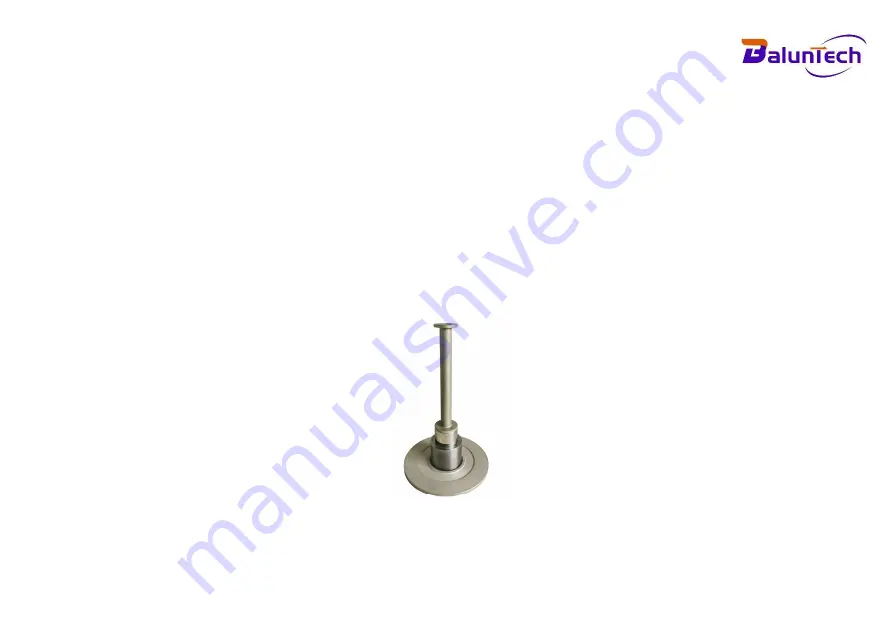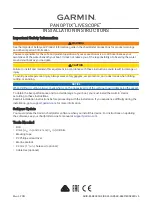
Page 26
6.3
PISTON RE-ASSEMBLY
1.
Holding the piston by the larger “head” end, carefully introduce the piston into the underside of the cylinder, and
push gently through (the piston will normally slide freely through due to its own weight). Never force the piston
into its cylinder or damage will result. If resistance continues, re-clean piston, cylinder, or both. If, after repeated
cleaning, the piston still will not slide freely within the cylinder, then permanent damage may have occurred. In
which case, the parts should be returned to the factory for evaluation or replacement.
2.
Stand assembly upright on a clean, hard, stable surface, ensure that the mass carrier is clean (especially the
central mounting hole), and place on the tapered end of the piston. Tap lightly using the palm of the hand to
locate on the taper.
3.
Carefully screw the assembly into the instrument, ensuring that the sealing rings is clean and undamaged, and
correctly re-fitted.
Piston and cylinder unit



































